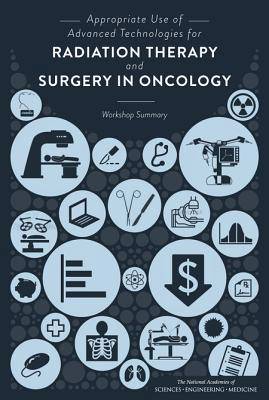
- Afhalen na 1 uur in een winkel met voorraad
- Gratis thuislevering in België vanaf € 30
- Ruim aanbod met 7 miljoen producten
- Afhalen na 1 uur in een winkel met voorraad
- Gratis thuislevering in België vanaf € 30
- Ruim aanbod met 7 miljoen producten
Appropriate Use of Advanced Technologies for Radiation Therapy and Surgery in Oncology
Workshop Summary
National Academies of Sciences Engineering and Medicine, Institute of Medicine, Board on Health Care Services, National Cancer Policy ForumOmschrijving
In recent years, the field of oncology has witnessed a number of technological advances, including more precise radiation therapy and minimally invasive surgical techniques. Three-dimensional (3D), stereotactic, and proton-beam radiation therapy, as well as laparoscopy and robotic surgery, can enhance clinician's ability to treat conditions that were clinically challenging with conventional technologies, and may improve clinical outcomes or reduce treatment-related problems for some patients. Both patients and physicians seek access to these new technologies, which are rapidly being adopted into standard clinical practice. Such demand is often propelled by marketing that portrays the new technologies as the "latest and greatest" treatments available. However, evidence is often lacking to support these claims, and these novel technologies usually come with higher price tags and are often used to treat patients who might have achieved similar benefits from less expensive, conventional treatment.
The increased cost of novel treatments without adequate assessment of how they affect patient outcomes is a pressing concern given that inappropriate use of expensive technologies is one of the key factors that threaten the affordability of cancer care in the United States. To explore these issues further, the National Cancer Policy Forum (NCPF) of the Institute of Medicine organized a workshop in July 2015. This is the third NCPF workshop in a series examining the affordability of cancer care. Participants explored clinical benefits and comparative effectiveness of emerging advanced technologies for cancer treatment in radiation therapy and surgery and potential strategies to assess the value and promote optimal use of new technologies in cancer treatment. This report summarizes the presentations and discussions from the workshop.
Specificaties
Betrokkenen
- Auteur(s):
- Uitgeverij:
Inhoud
- Aantal bladzijden:
- 110
- Taal:
- Engels
Eigenschappen
- Productcode (EAN):
- 9780309381291
- Verschijningsdatum:
- 16/04/2016
- Uitvoering:
- Paperback
- Formaat:
- Trade paperback (VS)
- Afmetingen:
- 150 mm x 226 mm
- Gewicht:
- 181 g

Alleen bij Standaard Boekhandel
Beoordelingen
We publiceren alleen reviews die voldoen aan de voorwaarden voor reviews. Bekijk onze voorwaarden voor reviews.











